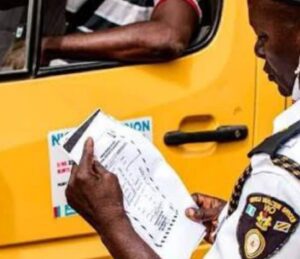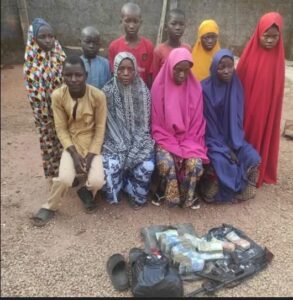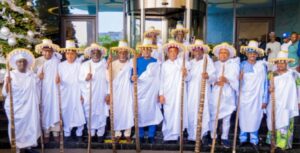Nigeria: Time to
Nigeria became a sovereign country 60 years ago and by normal expectations this our dear country should have settled down by now properly providing a healthy environment for all its people to grow and thrive.
There is of course no doubt that at independence the British cleverly booby trapped our trajectory of growth and development as they did on the Indian sub-continent, Malaysia, Sri Lanka, Pakistan ,The Central African federation, South Africa and in the oldest dominion in the Commonwealth, Canada.
All these countries have somehow attempted finding solutions to their loaded and some would say, predictable and planned obstacles put in their ways by the departing “perfidious Albion”.
In the case of India and Pakistan, the two countries have fought four wars over the control of Jammu and Kashmir between 1947 and 2017. East Pakistan declared itself Bangladesh in a brutal liberation war from Pakistan in 1971.
On August 9, 1965, Singapore broke away from the Malaysian federation because of racial riots of September 1964. The two countries have prospered since then.
Sri Lanka saw a bitterly fought civil war between majority Sinhalese and minority Tamils from 1983 to 2009 before an uneasy peace was imposed on the country by force of arms.
The Central African Federation created by the British in 1953 to include British colonies of northern and Southern Rhodesia and Nyasaland (now Malawi ) dissolved in 1963 when northern Rhodesia ( Zambia ) and Malawi became independent countries leaving Southern Rhodesia to fight a bitter racial war until it became independent Zimbabwe in 1980.
South Africa fought a low intensity racial war from the 1960s until 1994 when a nonracial majoritarian democratic government emerged to maintain the present precarious peace in the country.
Canada after series of French ethnic insurrections in Quebec resolved its identity crisis under the rubric of bilingualism and biculturalism in which the two founding nations are equal in spite of the demographic preponderance of Anglophone Canada.
Nigeria too went through the baptism of fire in the civil war between 1967 and 1970 before a forced peace prevailed.
This peace is not without challenge by those who feel the unitary government imposed on the country by the military since 1970 is not what our founding fathers negotiated as a basis of our political and economic association.
Unless we learn from the fortunes and misfortunes of countries with which we share common historical ties and tradition, we will experience the same problem.
If we had been more careful and had learned from the experience of countries similar to us as detailed above, we would not have fought the civil war in which a million or more poor people died. My emphasis is on suffering humanity who die in these unnecessary conflicts.
The unfinished task of balancing the need for individual and group freedom and security with the interest of the wider political union of a proper federation is what is at the root of the present brouhaha over the Southwest desire to protect its people from internal and external terrorism in the face of the inability of the federal police to properly secure the whole country.
The southwest security outfit known as “Amotekun” should be welcome by the federation in other to prevent self-help by people pushed to the wall by those bent on killing and injuring them and laying their farms to waste.
No people would fold their arms and allow other people whom they have in no way offended to descend on them killing their men and raping their wives and their male and female children, yes both boys and girls, and just remain quiescent.
Read Also: Makinde meets IGP over Amotekun, Oyo LG crisis
It is the cries of these hapless people that the governors have responded to. The federal authorities must understand the level of political education of people in this part of the country and that if their governments fail to respond to matters of life or death, the people will react violently. It is to forestall this that Amotekun has come up.
Governments everywhere exist for the common good. There should be no conflict between our demand for patriotism and the call to support our nation.
One has to be alive first in our towns and villages before one can think of belonging to a wider political community like the federation. I personally have suffered because of lack of peace in my part of the world.
I cannot visit my parents and my siblings’ resting places in the cemetery in my town because of the insecurity in my home state. Like many people living away from home, I am marooned in Lagos.
What I believe the federal government should do is to ask the other five zones of the country to organize along the same line as the southwest. If we have six regional police services along with the federal police, some level of sanity is bound to prevail.
We should reject the suggestion that Amotekun should not be armed. This is nonsensical and a non-starter. Even mai-guards are armed.
My neighborhood night watchmen made up of ex-service men are armed and without arms they will be like women! Are we going to deploy unarmed men against Kalashnikov-carrying terrorists and brigands? That will be a recipe for disaster. .What is necessary is to license members to carry arms that are properly registered so that their use can be tracked.
This is what is done in civilized countries of the world. Security goes beyond armed braggadocio; we must now use our common sense and intelligence. We should lay our cards on the table.
Amotekun must be properly kitted to make the kind of impact required. The time has come when we must put in place a proper structural architecture for a modern state good enough to attract international development partners to help with the development of this country.
If we do not do this, our country will die under its weight of inefficient and ineffective political and governance structures. The impression one gets nowadays is that our country is being run incompetently. The deep state is poorly served by people recruited without merit.
Recently, I got a text that I should come to Abuja to collect my National ID card which I applied for in 2015. I was pleasantly surprised because I had forgotten about it since the card really does nothing for anybody that I know. Of course I couldn’t go to Abuja.
I sent my nephew who is a lawyer to collect the card. The card finally got to me in the year of our Lord 2020. I looked at it and it says it will expire next month. The question I want to ask is – if the people in charge are brain dead or are insane? Why should a national ID expire? Common sense should have dictated that like birth certificate, the ID card should be forever at least for all adults.
I asked people who had the cards before and they said it had no expiry date. My university ID card as a professor does not expire. It has the date it was issued but no expiry date. I checked my ID card when I was a member of the Presidential Advisory Council on International Affairs in the presidency; It has date issued and no expiry date.
The issue of this card is a manifestation of how far we have sunk in public administration that we don’t seem to think about national affairs.
This is simply because there is no merit in appointments and recruitment of staff particularly at the federal level where nepotism, religious and regional bias have replaced sense of nationalism and excellence and yet we shout daily about national unity being nonnegotiable and irrevocable.
How many countries in the world do we know where if you want to buy a product or even medicine you are asked if you want “fake or original?” It happens in this country with un-policed or under-policed state where we all enjoy inflicting sorrow and pain on each other once one has some political leverage or advantage.
It is not the issue of Amotekun that we should be talking about; rather we should be talking generally about the federal government’s alienation from the majority of the people not just in the Southwest or Southeast but also in the North unless you belong to the favored few in the inner circle of those in power .
By Prof. Jide Prof. Jide Osuntokun












